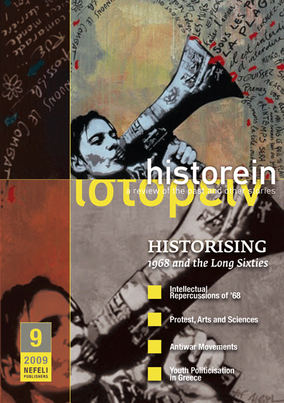Chris Lorenz's idea of conceptual inversion
Part of : Historein : a review of the past and other stories ; Vol.14, 2014, pages 93-94
Issue:
Pages:
93-94
Section Title:
Dialogos
Author:
Abstract:
The text deals with Chris Lorenz’s idea of conceptual inversion, understood as an epistemological blockade that stands as a barrier to the development of a proper theory of humanities and social sciences. According to Lorenz, the methodological and theoretical views of scientific programmes embody negations (i.e. inversions) of the views being criticized by them. Because of this process of “turning upside down”, many of the conceptual problems connected with the criticized positions survive. The author asks two questions: first, about the relation between Lorenz’s idea of conceptual inversion and Imre Lakatos’ idea of reconfigurations of research programmes, and, second, about possible common ground on which Lorenz’s interest in empiricism emerging out of his criticism of narrativism, and Ewa Domanska’s interest in new empiricism related to posthumanism (also critical of textual constructivism), could meet.
Subject:
Subject (LC):
Keywords:
Chris Lorenz, conceptual inversion, narrativism, theory of history, methodology of history
Notes:
Η περίληψη & τα keywords παρέχονται από πηγή εκτός τεκμηρίου
Electronic Resources:
References (5):
- Chris Lorenz, "Won’t You Tell me Where Have all the Good Times Gone?: On the Advantages and Disadvantages of Modernization Theory for History, Rethinking History, 10, no. 2 (2006): 171-200
- D. Coole, S. Frost, eds. New Materialisms. Ontology, Agency, and Politics (Durham/London: Duke University Press 2010).
- N. Gane, “Concepts and the ‘New’ Empiricism,” European Journal of Social Theory, 12, no. 1 (2009): 83-97;
- Chris Lorenz, “Can Histories be True? Narrativism, Positivism and the “Metaphorical turn”, History and Theory, 37 no. 3 (1998): 309-329.
- Imre Lakatos, The Methodology of the Scientific Research Programmes, eds. J. Worrall and G. Currie, Philosophical Papers, vol. 1. (Cambridge: University Press 1978).




